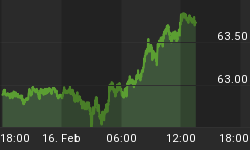The immediate result of Trump’s Thursday executive order banning TikTok and WeChat was to shave nearly $35 billion off the shares of Chinese tech giant Tencent, the parent company of WeChat, by Friday morning, though it pared half of those losses by market close in Hong Kong. Late on Thursday, Trump banned TikiTok and WeChat from operating in the United States, taking effect in 45 days unless they are sold by their Chinese-owned parent companies. Additionally, there is a vague condition that the U.S. Treasury Department is compensated in any sale deal.
In the executive order, the administration says that TikTok and WeChat capture “vast swaths of information” from their users. “This collection threatens to allow the Chinese Communist Party access to Americans’ personal and proprietary information”.
Any U.S. transactions with Tencent, which owns WeChat, and ByteDance, which owns TikTok are now banned starting in 45 days. That, too, remains vague and more clarity is expected to be forthcoming when Secretary of Commerce Wilbur Ross details the specific transactions that will fall under the ban.
Shares in Hong Kong-listed Tencent took a major hit immediately after the executive order was announced, but bounced back somewhat after investors had time to digest the fact that the target here is WeChat, not Tencent in general, which owns
ByteDance has been considering listing in New York or Hong Kong, but US-China tensions have forced it to re-think its strategy. It could list as a combined entity, or separate out the small part of the business that includes TikTok, according to sources cited by Reuters.
Last week, however, sources told Reuters that New York was likely off the list now, and that ByteDance would consider Hong Kong or Shanghai.
Related: Precious Metals Bulls Are Not Done Yet
TikTok is not available in China, where ByteDance operates a different version of the app called “Douyin”.
Earlier this week, Microsoft confirmed it is in talks with the U.S. government about its possible purchase of TikTok, despite the fact that Trump had earlier said he would not support an American takeover of the video app.
For Microsoft, it would be an incredibly risky, but incredibly rewarding endeavor once the US Treasury Department element is clarified. TikTok could be valued at $10 billion at the low end or upwards of $30 billion at the high end--but it’s a deal that has a host of landmines, from national security issues to government intervention and valuation itself.
Talks are expected to wrap up by the end of this month, with the September 15 ban deadline looming. According to CNBC, Microsoft has already agreed to transfer TikTok’s code from China to the U.S. within a year should a deal be agreed.
In the meantime, there’s still Tencent’s WeChat to deal with. While the hammer was clearly falling on TikTok, the targeting of WeChat not only hit Hong Kong-listed Tencent, but shook the entire global tech market. That’s because it sparks concerns that other Chinese giants, such as e-commerce monolith Alibaba, will be the next targets.
By Michael Kern for Safehaven.com
More Top Reads From Safehaven.com:

















